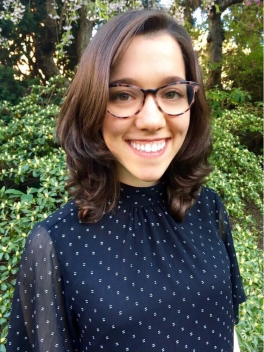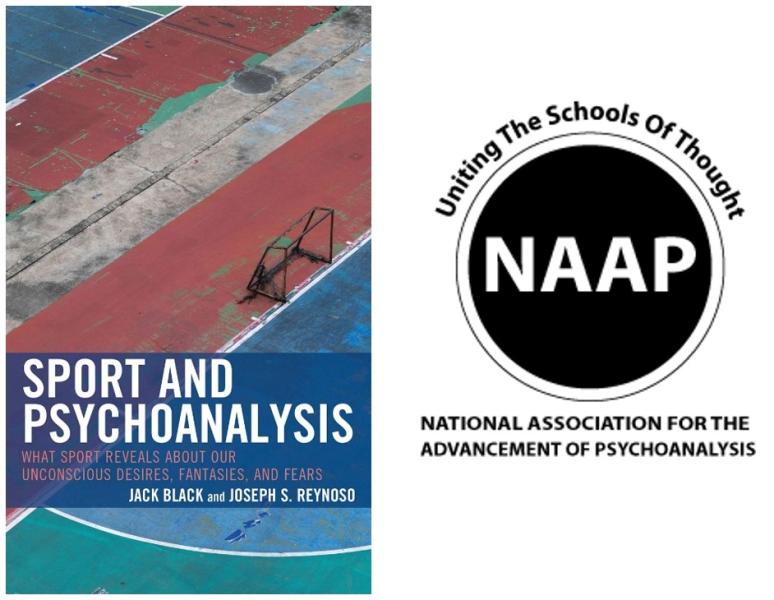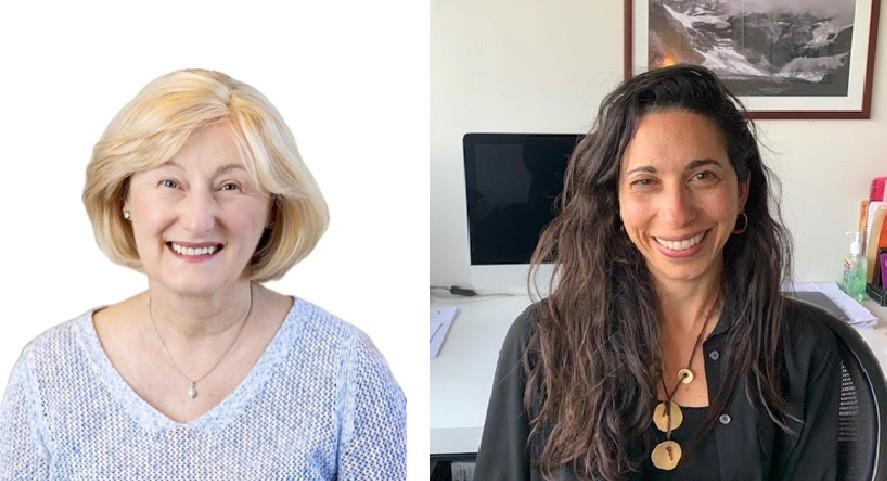Clinical Psychology Doctoral Program
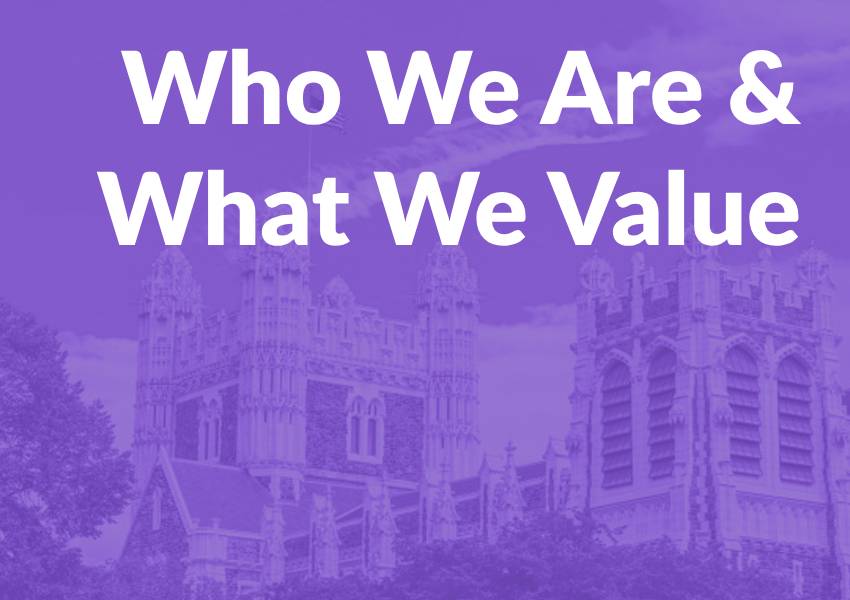
The PhD program in Clinical Psychology at City College is one of the most prestigious psychodynamically-informed doctoral programs in the United States.
Our faculty, students, and alumni have been at the forefront of research, theory, and institutional leadership for over 50 years. Our training emphasizes the reciprocal influence of scholarship and clinical practice, and generates cutting-edge research, theory, & novel, integrative models of clinical work. Along with a strong commitment to psychodynamic thinking, our program is dedicated to understanding the manner in which people are shaped by family and community and the ways in which social and cultural norms and inequities affect individual development. Our on-site clinic affords students a rare opportunity to train in a 4+ year practicum with short-term and long-term psychotherapies with children & adults. Along with psychodynamic psychotherapy, our students are trained in several other evidenced-based treatments. Embedded within our program, The Psychological Center is a community-based mental health clinic that serves 300+ individuals each year, including CCNY students, the West Harlem community, & the broader metropolitan area.
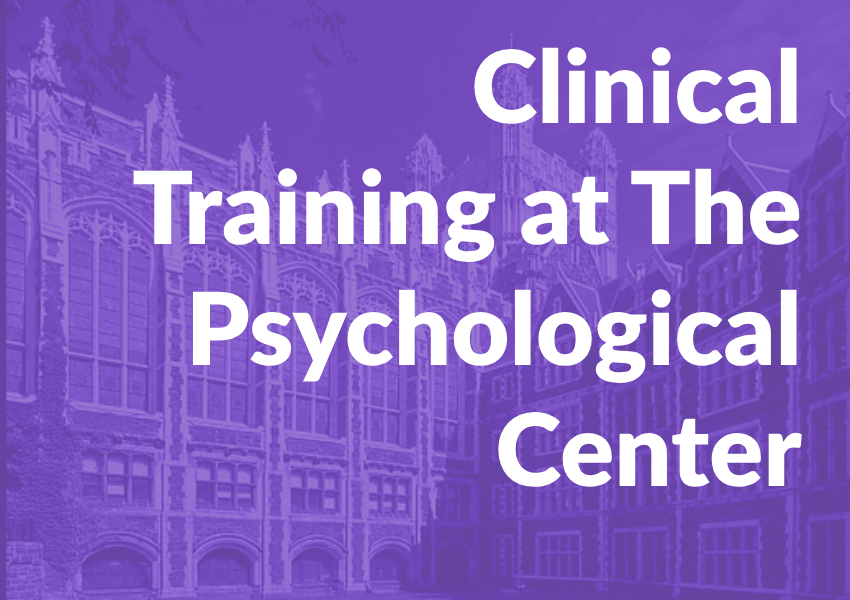
All doctoral students in the Clinical Psychology PhD program train for four years at The Psychological Center, in addition to external externships, fellowships, and internship.
The Psychological Center is a community mental health clinic located on the campus of The City College of New York (CCNY). Our clinic is dedicated to delivering excellent and affordable psychological care to the West Harlem community and the broader metropolitan area.
✓ Unique among doctoral training sites in NYC, doctoral students at City have the opportunity to train on-site for four consecutive years with diverse populations of all ages
✓ Training & supervision in a broad range of modalities including: Psychodynamic Therapy, Integrative Therapy, Dialectical Behavioral (DBT), Cognitive Behavioral Therapy (CBT), Emotion-Focused Therapy (EFT), Therapeutic Alliance Focused Psychotherapy (TAAP), Transference-Focused Psychotherapy (TFP), as well as adult, child, couples, & group therapy
✓ Outstanding supervision provided by licensed psychologists, including one hour of supervision per client per week in earlier stages of clinical training

Our second-year cohort presented their innovative research projects at the 11th Annual Research Day this past December. The event also featured two compelling presentations by City alumni Dr. Florence Lui, "Bridging Cultures and Care in Clinical Research: Examples from Psycho-Oncology", and Dr. Mariely Hernandez, "Cannabis & ADHD: Can Sleep Motives Engage Youth in Treatment?"
Many thanks to The Research and Scholarship Committee for their efforts in making this wonderful event happen!
Program Director Dr. Steve Tuber masterfully delivered “The Art of Play Therapy with Children,” a thirteen-week lecture series for the Institute for Child and Adolescent Psychoanalytic Psychotherapy and “Winnicott in a Clinical Context” as a four-part lecture series for the William Alanson White Institute.
Hannah Bloom, a current pre-doctoral intern at Mount Sinai-Behavioral Health Center (MSBHC), explores how psychological functioning is transmitted from caregiver-child as represented in TAT responses, in her published dissertation “An Analysis of Caregiver–Child Responses on the Thematic Apperception Test (TAT)” (In Press, Journal of Infant, Child and Adolescent Psychotherapy).
Alum Dr. Dvora Efrat provides a nuanced review of the book, "Lost to Desire: The École Psychosomatique de Paris and Its Encounter with Patients Who Do Not Thrive" by Wolfgang Lassmann, weaving in her own insights into the book’s exploration of how mid-century French psychoanalysts worked with patients whose struggles were expressed in the body as much as the mind
Dr. Jack Black and alum Dr. Joseph S. Reynoso, co-edited Sport and Psychoanalysis: What Sport Reveals about Our Unconscious Desires, Fantasies, and Fears, a collection that looks at sport not just as a game but as a window into the unconscious motivations, rivalries, fantasies, and fears that shape how we play and how we watch. Bringing together a range of voices, the volume explores coaching, fandom, identity, and the broader cultural meanings of sport.
The volume was recently recognized as a finalist for the 2025 Gradiva® Award for Best Edited Book by the National Association for the Advancement of Psychoanalysis.
CCNY alum Dr. Catherine Monk and her team published, “Mental Health Service Utilization in a Novel Insurance-Based Ob/Gyn Integrated Model for Women Across the Lifespan,” in the January 2026 issue of the Archives of Women’s Mental Health. At a time when access to mental health care remains uneven and fragmented, the study highlights an innovative integrated care model embedded within Ob/Gyn services, pointing toward more accessible and coordinated support for women across the lifespan. By examining how women engage with mental health services within medical settings, this work contributes to broader conversations about interdisciplinary care and the future of women’s mental health.
Access the full article here.
Dr. Shannique Richards, an alum and current psychologist at New York-Presbyterian/Columbia University Irving Medical Center, delivered the compelling webinar titled "Coping with Fertility-Related Grief and Loss: A Relational Approach". The presentation explores the psychological, emotional, and social impact of infertility and pregnancy loss, with a focus on how perinatal grief is experienced, expressed, and addressed in clinical treatment.
With the explosion of text-based therapy or other means of delivering therapy, alum Huw Green answers key questions in “So you want to try psychotherapy? But what does it actually do?" in the Guardian in November 2025! Read the full article here.
As the epidemic of loneliness continues, Dr. Eva Leighton published her dissertation “Loneliness, Interpersonal Sensitivity and the Mechanisms through Which the Dimensions of Trait Emotional Intelligence May Protect Against Clinical Depression” that attends to the bidirectional relationship between loneliness and depression (October 2025 issue of the Journal of Psychiatric Research). Read this timely and relevant work here.
Alum Dr. Ben Bernstein contributed to the article “What Does It Mean to Psychoanalyse Sport: Reflections from the Field”, which reconceptualizes sport as a complex cultural site through which unconscious life is enacted and negotiated. Edited by Dr. Joseph S. Reynoso and Dr. Jack Black, the article brings together scholars, including several City College alumni, to examine the psychological and cultural dynamics that shape athletic experience, competition, and our broader engagement with sport.
The innovative journal Psychoanalytic Dialogues, edited under the leadership of CCNY alumni, Dr. Mary Kim Brewster (Executive Editor) and Dr. Lauren Levine (Joint Editor-in-Chief) features a wide range of generative panels and discussions, including the first completely bilingual panel presented both in English and Spanish translation.
In November 2025, CCNY alum Dr. Sharone Bergner authored “Tuning in to the Sounds of Aliveness” examining Lombardi’s work on the concrete body in psychoanalysis, emphasizing the role of attending to bodily experiences in the integration and deepening of therapeutic self–other relationships.
More recently, the January 2026 issue opens with a panel responding to Bernadine Han’s auto-theoretical paper “Thinking Race: Exploring the Scene of Racial Enactment,” with thought-provoking discussion by CCNY alum Dr. Alexandra Woods.
Alum Dr. Lisa Samstag and her research group will be the publishing the culmination of more than 30 years of collaborative work in their new book Alliance-Focused Training: An Evidence-Based Guide to Negotiating Ruptures in Therapy this spring. The book tackles the complicated yet essential factor in effective clinical work of anticipating, recognizing, and repairing ruptures in the therapeutic alliance by presenting an empirically supported training approach.


IMPORTANT DATES
- In-person Open House: October, 16 2025.
- Virtual Open House: October, 23 2025.
- RSVP by emailing our admissions coordinator: clinicaladmissions@gmail.com
- Application Deadline: December 1, 2025 11:59pm.
Last Updated: 02/18/2026 22:56



